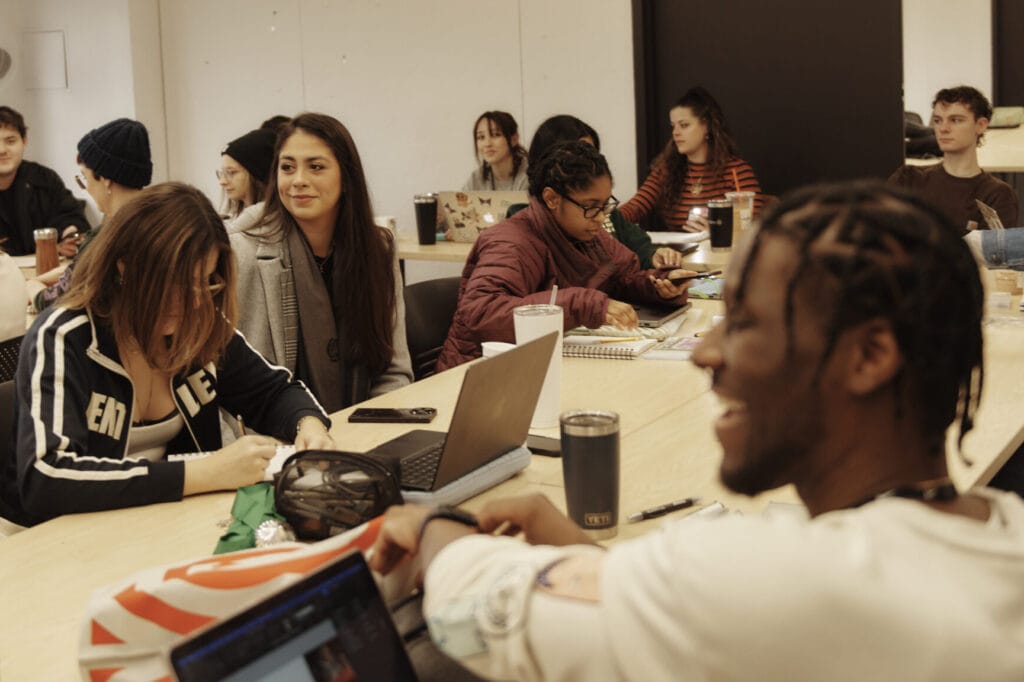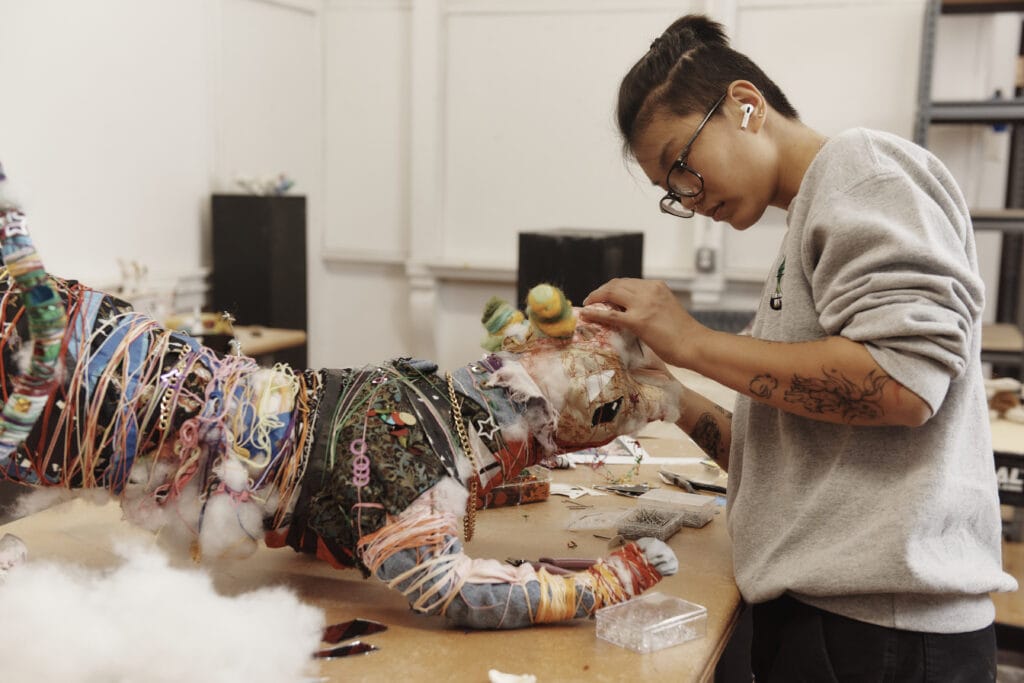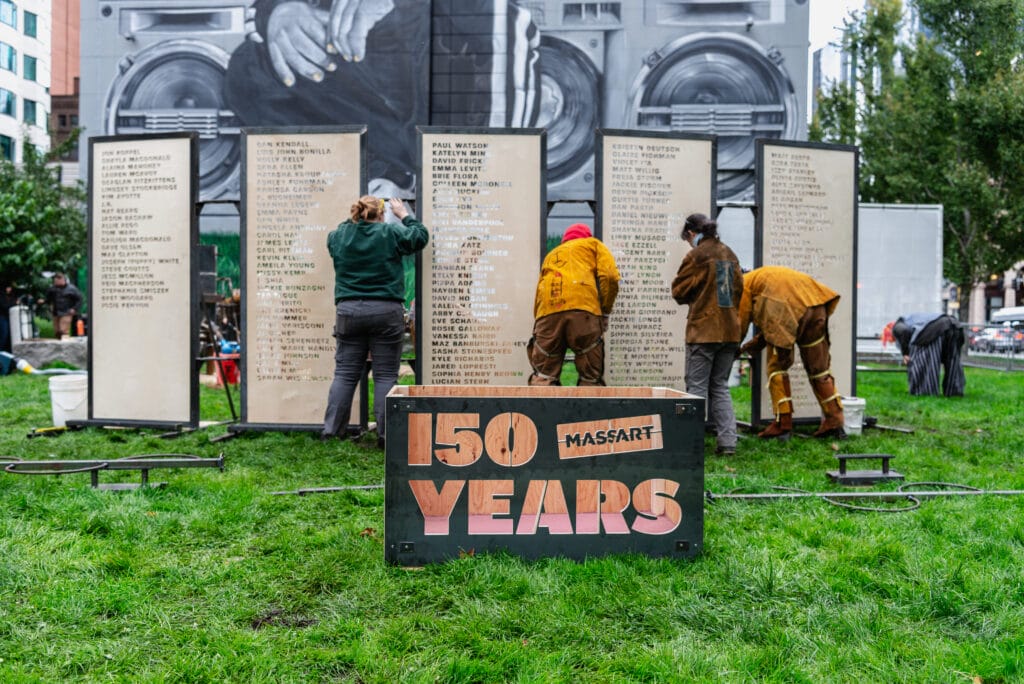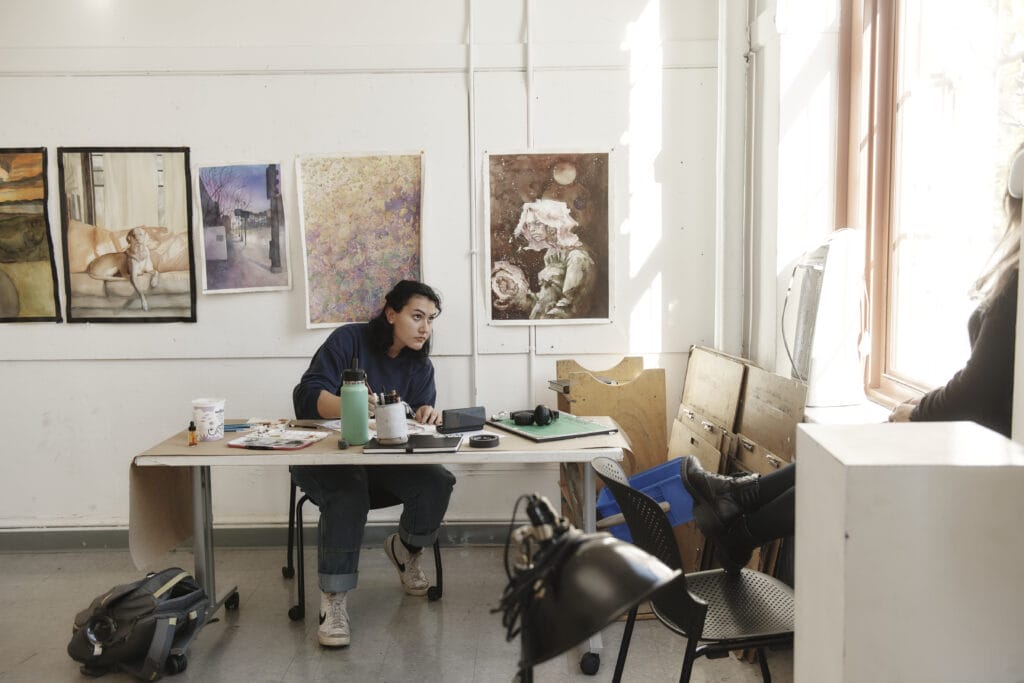Programs & Services
From safety escort and shuttle services to campus IDs and bike registration, your safety is our priority.
Our work to keep the MassArt community safe and secure takes many forms. The Office of Public Safety has developed a range of programs and services to help keep our campus happy, healthy, and crime-free.
For more information regarding any of our services, please call us at (617) 879-7800 or visit our office on the second floor of the Tower Building.
MassArt’s Public Safety Dispatch Center operates 24 hours a day, every day. For immediate assistance, contact the Dispatch Center at 617-879-7800. You’ll find emergency phones distributed across campus, along with Blue Light emergency call boxes located in the MassArt parking lot and garage.
We take pride in helping to ensure that each member of our community feels safe at all times. Call the Public Safety Department (617.879.7800) to request a walking escort to any point on campus, the Ward Street Lot, or areas immediately around campus.
During the academic year, the Public Safety Department operates a van shuttle service Monday through Friday, every hour on the hour from 5:00pm to 12:00am with a pick-up point at Evans Way. The shuttle serves an area within approximately a two-mile radius of campus.
Registering your bike is easy, and it goes a long way in the event that a bike is lost or stolen. Please visit the Public Safety Office where staff will photograph bikes, scribe frames, issue registration decals, and provide access to locked bike storage in the Artists’ Residence.
In addition to alarm systems that protect a number of interior and exterior doors, closed-circuit TV cameras (CCTV) monitor selected areas of the campus around the clock. The purpose of these cameras is to deter crime and to assist in protecting our campus and community. More information about our CCTV policy is available here.
MassArt issues Identification cards to all students, staff, and faculty. While on campus, please wear your ID card using the lanyard and badge holders that are issued with your ID. Displaying your ID while on campus is an important and helpful way to assist the Public Safety Department in controlling trespassing.
This policy is in place to ensure the safety of the entire MassArt community, and your cooperation is very much appreciated. If your ID is not displayed or readily available, some security situations may require our staff to briefly detain you until your status can be verified.
Please bear in mind that your MassArt ID remains the property of the college and must be produced upon request by a public safety officer or other college official. If you are involved in a rule violation, your card may be held temporarily until the situation is resolved.
If you lose your ID, check with the Public Safety Department to see if it has been returned. The cost for a new card is $25; you’ll need to fill out an ID replacement form and pay at the Business Office on the eighth floor of the Tower building.
Lost and Found is located in the Public Safety Department on the second floor of the Tower Building. The College cannot assume responsibility for loss or damage to personal property left unattended in classrooms, studios, or stored on campus. All students are urged to bring valuables home daily. Please note that food, drinks, broken items, and items that present sanitation risks are discarded.
To inquire about a lost item, please email publicsafety@massart.edu or call 617.879.7800.

MassArt's campus and surrounding neighborhood, as seen from the Tree House Residence Hall.









